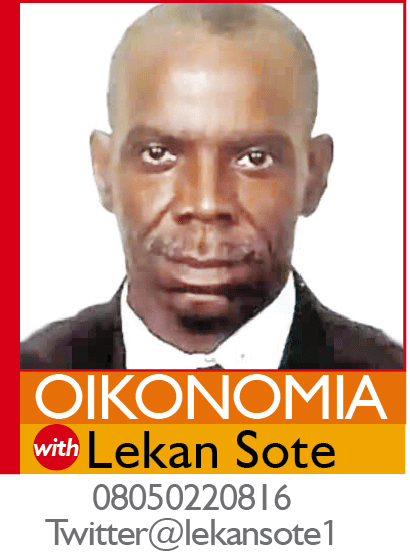BY FESTUS OKOROMADU, ABUJA
Nigeria’s annual inflation rose by 0.18 per cent to 22.22 per cent in April, from 22.04 per cent reported in March, driven by continued rise in the price of food stuff, the National Bureau of Statistics said on Monday.
According to the NBS, food inflation, which accounts for the bulk of the country’s inflation basket, rose to 24.61 per cent in April from 24.45 per cent in March.
“The rise in food inflation on a year-on-year basis was caused by increases in prices of oil and fat, bread and cereals, fish, potatoes, yam, fruits, meat, vegetable, and spirits,” the Bureau said.
Other details of the report show that, “On a year-on-year basis, the headline inflation rate was 5.40% points higher compared to the rate recorded in April 2022, which was 16.82%. This shows that the headline inflation rate on a year-on-year basis increased in April 2023 when compared to the same month in the preceding year (i.e., April 2022).
“Similarly, Urban inflation rate in April was 23.39%, on a year-on-year basis, translating to 6.05% points higher compared to the 17.35% recorded in April 2022. On a month-on-month basis, the urban inflation rate was 2.05% in April 2023, this was 0.05% points higher compared to March 2023 (2.00%). The corresponding twelve months average for the urban inflation rate was 21.50% in April 2023. This was 4.49% points higher compared to the 17.01% reported in April 2022.
“The rural inflation rate in April 2023 was 21.14% on a year-on-year basis; this was 4.82% points higher compared to the 16.32% recorded in April 2022. On a month-on-month basis, the rural inflation rate in April 2023 was 1.78%, up slightly by 0.06% points compared to March 2023 (1.72%). The corresponding twelve months average for the rural inflation rate in April 2023 was 20.18%. This was 4.27% points higher compared to the 15.91% recorded in April 2022.”
Inflation has remained one of the economic challenges facing the nation, eroding savings and incomes, and prompting the Central Bank of Nigeria to hike interest rates to their highest levels in nearly two decades.
The CBN is due to set interest rates next week after hiking the benchmark lending rate in March by 50 basis points to 18 per cent, citing continued price pressures and a weakening naira.

